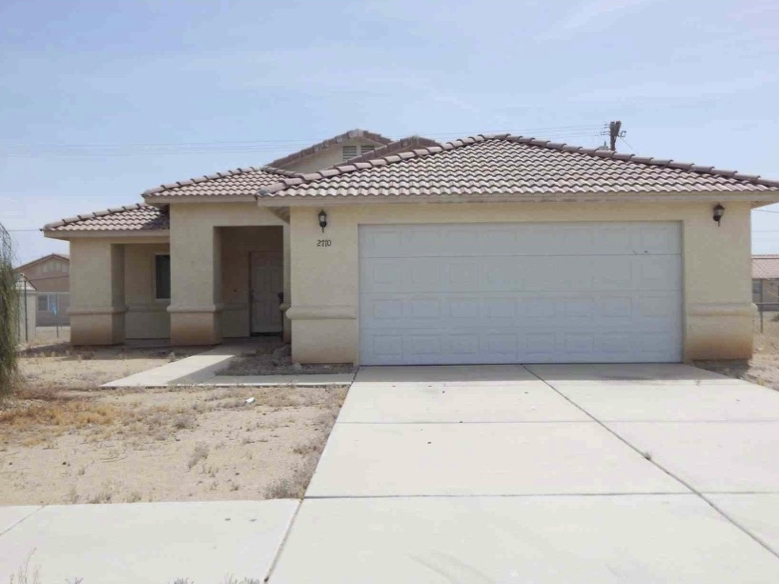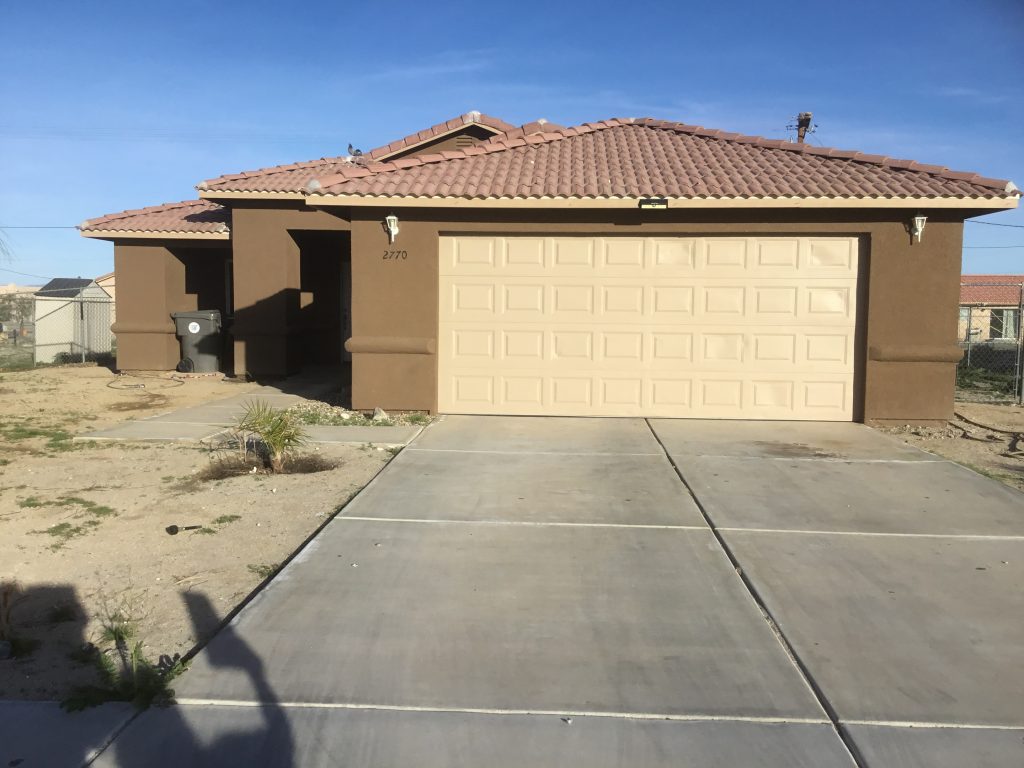Nearly Limitless Options
in One IRA
Invest in both traditional and alternative assets with a single custodian – ready to go beyond a self-directed IRA?
In observance of Good Friday, our offices will be closed on Friday, April 18, 2025. We will resume regular business hours on Monday, April 21.
Clients can visit myEQUITY at any time to see status updates, submit new requests, and receive up-to-date information regarding accounts.
Investor Insights Blog|91-Percent ROI Real Estate Investment: From Tax-Deferred to Tax-Free
Real Estate

Kay, a speech therapist in the California public schools, hopes to retire soon. After the economic turbulence in 2008-09, the possibility of retiring was looking more distant than ever. Her community was hit hard; her retirement fund took a significant hit.
In the following years, she learned that she could put her retirement savings to work in ways she previously thought impossible. She transferred what remained in her 403(b) and 457(b) accounts into an Equity Trust self-directed IRA and began investing in real estate.
“When I tell people that I invest in real estate through my IRA, they usually look perplexed,” Kay says. “I can tell that most do not know what I am talking about. However, my successes spike their interest.”
Through her real estate investing, she has been able to make up for previous losses and more, while rehabilitating distressed properties in her community and giving families a place to live. She now has more than $5,000 in monthly retirement account income thanks to her investments. And after some creative strategizing, almost 90 percent of her passive income is tax-free.
A recent real estate investment with a 91-percent return on investment (ROI) illustrates how she is transforming her retirement funds into a tax-free financial future.

Kay tracks her county’s real estate trustee and tax sale auctions. Through her research, she learned of a distressed single family property.
She kept her eye on the property as it went to auction. Her real estate broker represented her and her IRA bought the property for $65,000.
Though she bought the property in her Traditional IRA, it would end up in a different account before it was rehabbed and sold.
Kay’s previous Traditional IRA investment, her first self-directed investment, was a distressed house that was rehabbed and sold for a 48-percent ROI in less than 150 days.

I have not had to deal with the emotional ups and downs that I would experience when my retirement savings were invested in mutual funds and stocks…I have made more return on my IRA money in the past four years than I thought possible.
Kay, Real Estate Investor, California
“I could see that my return was substantial, however, I could also see that my future tax bill would also be substantial,” Kay recalls. “That’s when I decided that a transition to Roth would be best for my long-term financial growth.”
Kay was drawn to the Roth IRA’s potential benefits – such as tax-free distributions after age 59½ and the account being open five years.
When she decided to open a Roth IRA, she had already purchased the distressed house in her Traditional IRA. She spoke with Equity Trust about converting the property to her Roth IRA. She had the property appraised so she could complete the necessary Fair Market Valuation and conversion paperwork.
The house appraised at $70,000 in the same distressed condition, which meant that Kay had to pay taxes on an additional $5,000 of value above her purchase price.
“I believed that to be a small price for the tax-free 91-percent ROI that I received when the property investment was sold out of my Roth IRA in 2018,” she says. “That is over $50,000 of investment income that will never be taxed by the IRS.”
Kay was so excited about the benefits of her Roth account that she moved several other assets from her traditional to her Roth IRA in the past couple of years.
A recent asset she moved to her Roth IRA was a rental house that appraised at $8,000 more than when it was purchased in her Traditional IRA. However, $675 a month in rent is now flowing into her Roth IRA tax-free.
“In a little less than two years I have been able to convert, transition and build my Roth IRA to where it can produce over $5,400 of tax-free rental income when all properties are fully rented,” Kay says.
Kay’s investment property exterior: before and after


The property needed work, including drywall, appliances, broken windows, and cabinetry, at a cost of about $10,000. Any costs must be paid from the IRA that holds the asset. There was one issue: Kay’s Roth IRA didn’t have enough funds.
She teamed up with a real estate broker/property manager that agreed to complete and fund the rehab with his costs coming out of the sale escrow. He did this with her promise that he would be able to list the property for sale when the rehab was completed.
In other instances, when Kay has paid bills related to IRA investments from her Equity Trust account, she has found the process to be simple.
“Equity Trust Company is a dream to work with,” Kay says. “So many tasks like bill pay and distributions are done online with no paperwork needing to be faxed or emailed. Customer service always answers my questions or routes me to the person who has the answers.”
Video: Client Bud Converted a Thrift Savings Plan to a Roth IRA for Tax-Free Growth
After being rehabbed and converted to Kay’s Roth IRA, the property was sold in 2018 for a 91 percent ROI in her tax-free Roth IRA.
The house, which was once damaged, is now in “near-new condition” and owned by a family that was new to the community. This investment property is the fifth shuttered house she has rehabilitated and restored into a home since opening her IRA in March 2015.
With the proceeds from the house, her Roth IRA purchased a duplex which, when fully rented, produces over $1,700 of tax-free, monthly passive income to her Roth IRA.
Not only has she rehabbed several properties through her IRAs, but her accounts have also provided hard money loans to other investors so she can affect more change in her community, even when she doesn’t have the time to oversee a project herself.
“It is wonderful that my IRAs grow, but I get great satisfaction in seeing a home come to life and return as a viable part of my community,” she says.
Kay continues to use her Roth IRA to purchase and rehab duplexes to help improve the community. Also, several hard money loans remain active in her accounts.
What sparked from listening to a radio show about retirement investing has evolved, in a relatively short amount of time, to retirement security for Kay and her husband. Between the pair, they have five accounts at Equity Trust.
Others have taken notice.
“My family has become interested, and the broker that handled the rehab on the trustee sale property was so impressed with what was accomplished within my IRA that he opened an Equity Trust SEP IRA in 2019,” Kay says.
Kay tells those wondering if they will be able to afford retirement that now is the time to get a self-directed IRA.
“I have not had to deal with the emotional ups and downs that I would experience when my retirement savings were invested in mutual funds and stocks,” she says. “I lost a lot of value in the 2008-09 crash. I have not lost a single penny with my self-directed account. I have made more return on my IRA money in the past four years than I thought possible.”
Read More Real Client Stories: Access Free Guide Now
Can I transfer funds from a previously established retirement plan into an Equity Trust self-directed IRA?
If I invested in a rental property with my IRA, how does the rental income get into my account?
Case studies are provided for illustrative purposes only. Past performance is not indicative of future results. Investing involves risk including possible loss of principal. Information included in the above case study was provided by the investor and included with permission. Equity Trust Company does not independently verify all information provided by third parties.
You are leaving trustetc.com to enter the ETC Brokerage Services (Member FINRA/SIPC) website (etcbrokerage.com), the registered broker-dealer affiliate of Equity Trust Company. ETC Brokerage Services provides access to brokerage and investment products which ARE NOT FDIC insured. ETC Brokerage does not provide investment advice or recommendations as to any investment. All investments are selected and made solely by self-directed account owners.
Continue